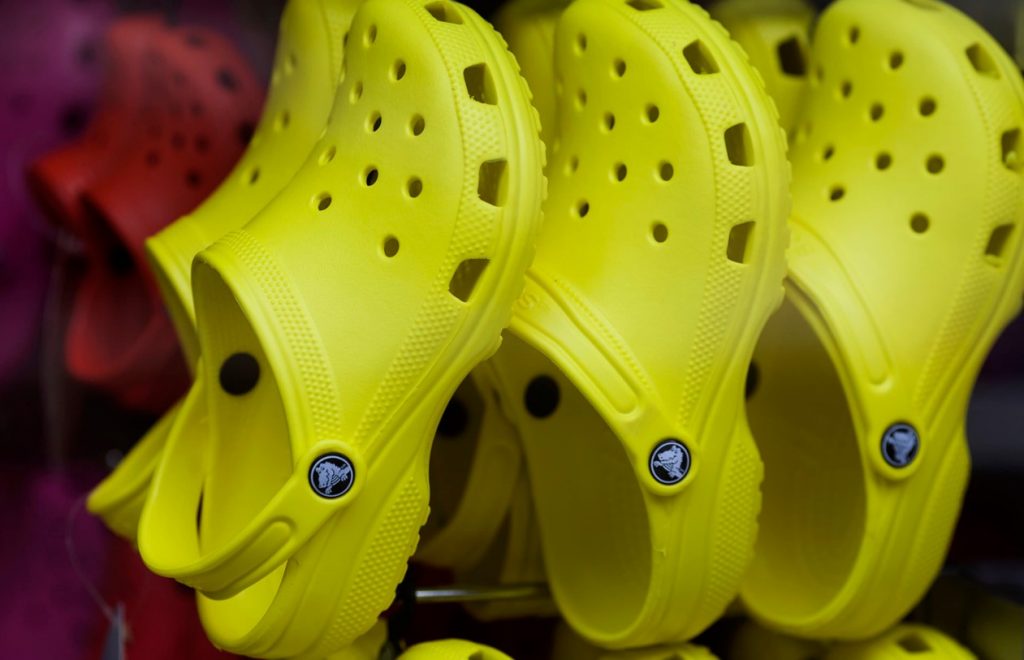
Some investors are not seeing the appeal of Crocs’ multibillion-dollar deal to buy the casual shoemaker Hey Dude.
But Crocs CEO Andrew Rees argues the acquisition could lead to robust sales growth, especially in the U.S. Northeast and coastal urban regions.
Crocs is also hoping to expand its portfolio of shoes beyond the rubber clogs that it’s best known for while still tapping into comfort trends, he said.
On Thursday morning, the retailer announced plans to acquire the privately held footwear label Hey Dude for $2.5 billion in a cash-and-stock deal. The transaction is expected to close in the first quarter of next year and immediately add to revenue and earnings growth, the company said.
But Crocs shares tumbled 12% on Thursday — its worst showing since April 2020 — as investors fretted over the news.
“We think a great way to diversify and provide a little bit more security to our investors is to not diversify away from the iconic clog within Crocs, but to add another brand, which has its own icon,” said Rees, in an interview on CNBC’s “Power Lunch.” “And that provides, we think, a tremendous diversification and a really compelling reason for us to acquire this brand.”
“We think [Hey Dude] has far more potential, both here in the U.S. and also globally,” he added.
Founded in Italy in 2008, Hey Dude does more than 40% of its business online and is expected to bring in roughly $570 million in revenue this year, Crocs said. Sales are forecast to be between $700 and $750 million in 2022, according to Rees.
In a research note, Piper Sandler called Hey Dude “one of fastest-rising brands” it has been tracking as part of its biannual “Taking Stock With Teens” survey. It ranked No. 8 in its fall survey, up from No. 17 in 2020 and No. 54 two years ago.
Piper Sandler also said Crocs’ share-price drop doesn’t square with the acquisition news. “We believe concerns are that investors are unfamiliar with the brand, worried about the sustainability of growth and management didn’t reiterate guidance,” it said.
Crocs shares have enjoyed a massive run-up in 2021, rallying roughly 93% year to date. Market capitalization is about $7.2 billion.





























